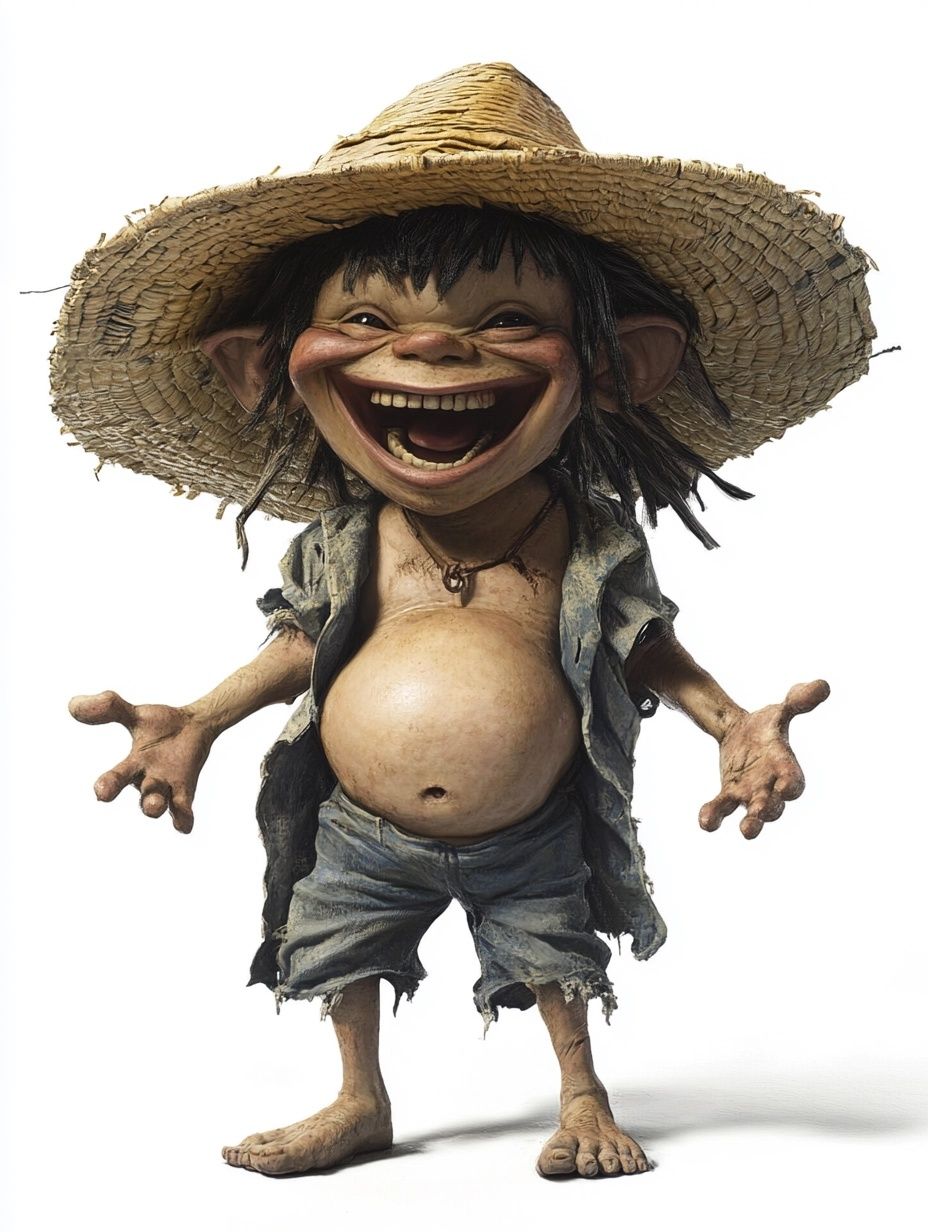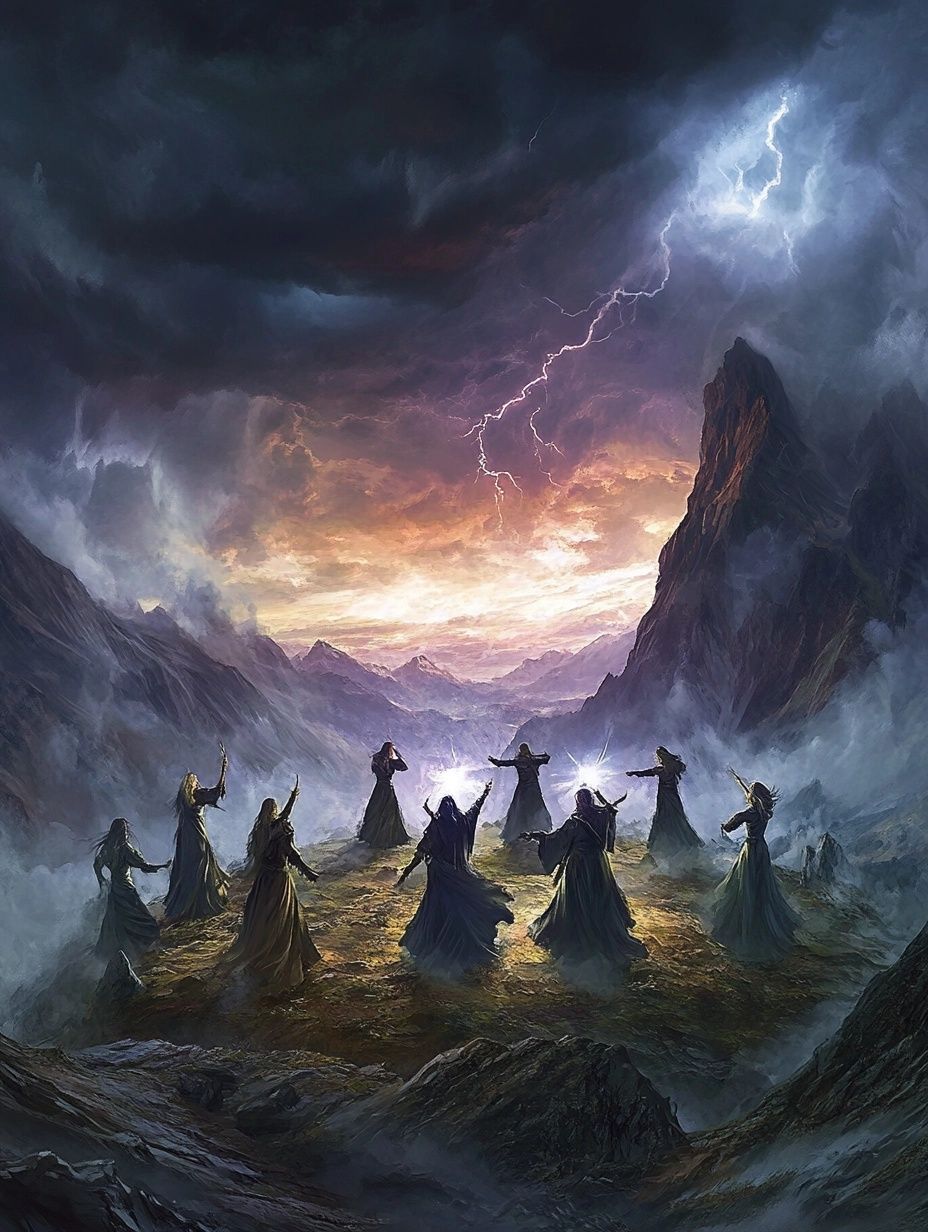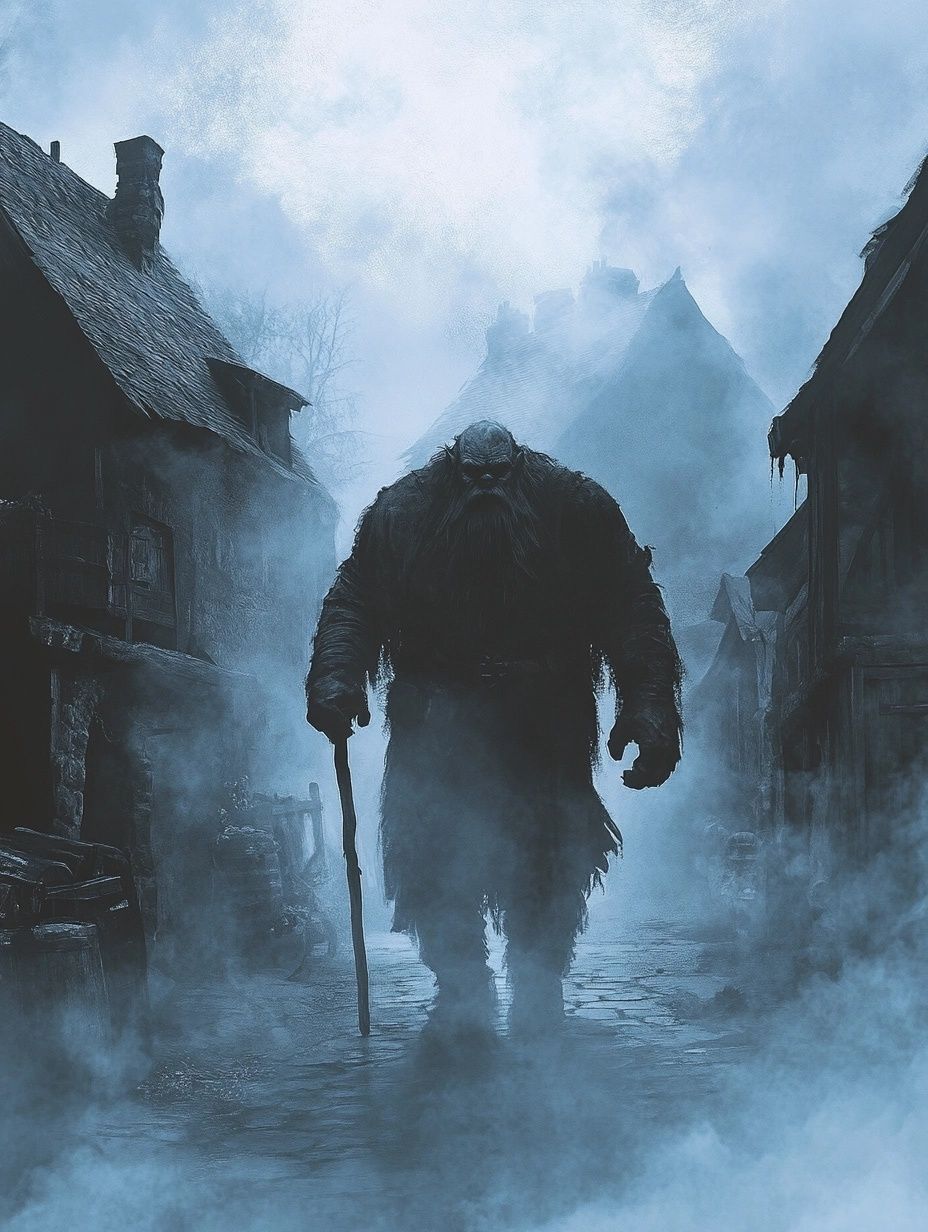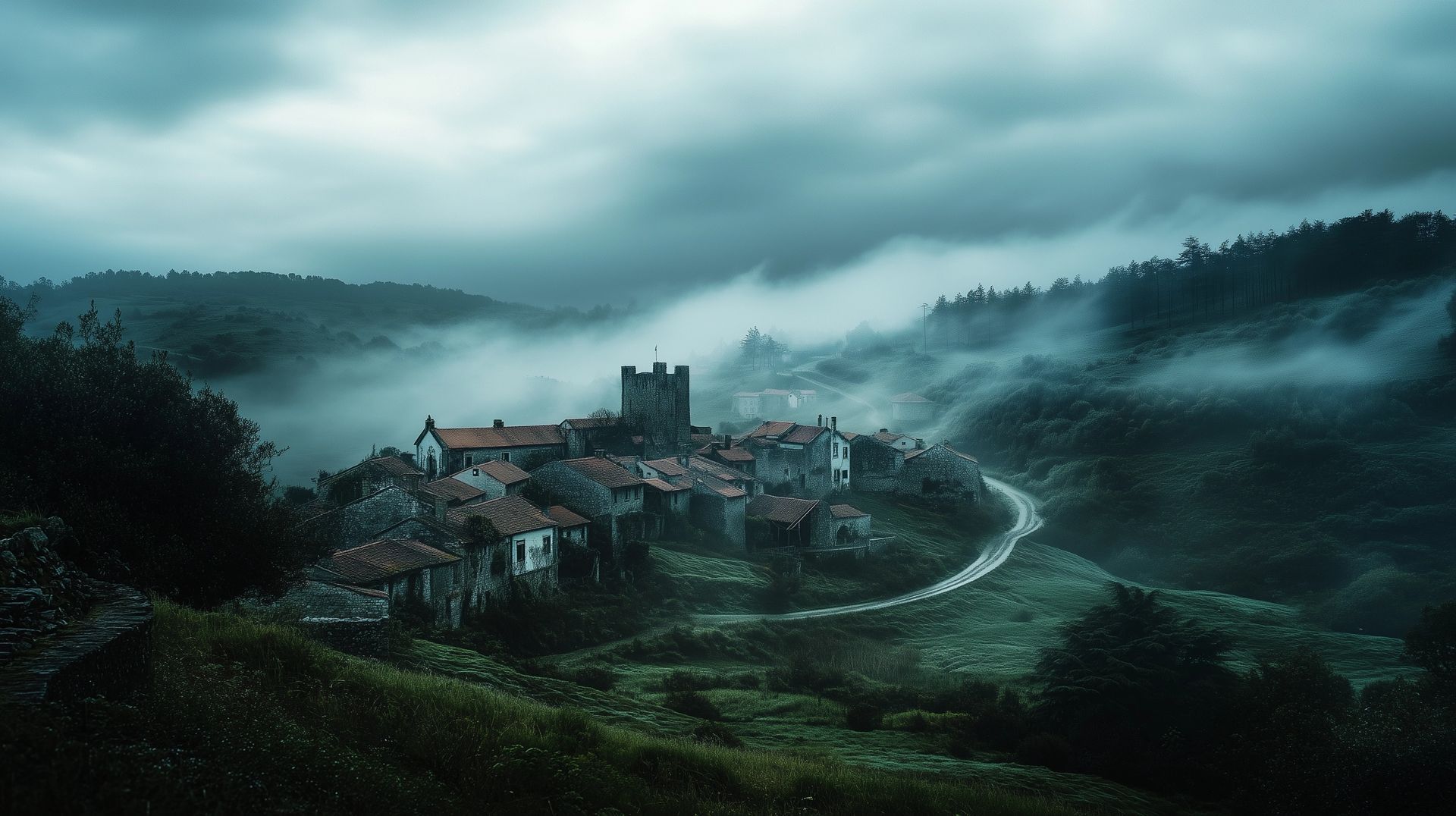7 bizarre folklore tales from El Salvador & the hidden meanings we can learn from

In the mysterious heart of Central America, the beautiful country of El Salvador is brimming with odd legends and stories.
Some are dark and creepy. Others are a little humorous or sad.
But each one carries a hidden something for us to reflect on (well actually, not always so hidden but hey ho).
Let’s get stuck into seven of the most obscure Salvadoran folklore tales—and see what they’re really trying to tell us.
Published: 16th Oct 2024
Author: Sean Nixon
1. La Siguanaba
One of the most intriguing figures in Salvadoran folklore is La Siguanaba (or La Sihuanaba in other regions).
You might have heard stories in a similar vein (looking at you, La Llorona), but La Siguanaba’s story is a beast of its own—literally.
She’s a figure that originated from the indigenous Nahua people and was once known as Sihuehuet, which means "beautiful woman."
She was cursed by the gods for infidelity and for neglecting her son, El Cipitío (more on this little oddball next).
And by way of punishment, she was doomed to forever lure unsuspecting men with her beauty, only to reveal her terrifying true form up close.
So what does the Siguanaba do to her victims?
Well, once a man is close enough, she turns into a horrifying figure -often with the face of a horse or a skull - and drives them to madness.
Some men are left wandering aimlessly in the wilderness, and others are never seen again.
The lesson? Don’t be that guy. It’s a literal cautionary tale about chasing after the wrong things—whether it’s vanity, temptation, or ignoring the fact that if a strange woman is hanging out alone, you might just want to leave her to it.


2. El Cipitío
As promised, next up, we’ve got El Cipitío.
If Peter Pan had a Salvadoran cousin who ran around in a big straw hat, laughing like a maniac, it would be El Cipitío.
He’s a mischievous man-child - literally a man who never ages, stuck in a child's body - forever throwing ash at people, giggling uncontrollably and causing general chaos.
But he’s no random prankster. He’s cursed - born from an affair between his mother, La Siguanaba (she's back), and a god (could have been worse?).
So, he spends eternity trapped as a kid, never growing up, just hanging around and ruining people’s days. Little imp.
What’s the hidden message? Well, this one isn't really hidden is it. Aside from being a reminder to steer clear of sketchy divine affairs (in case that’s something you were considering), it’s clearly a bit of a poke at people who never mature.
El Cipitío laughs at the adults because he can’t become one and maybe that’s a warning to not be stuck in your own immaturity, avoiding life’s responsibilities.
Or maybe it’s just a nudge to avoid throwing ash at people. That too.
3. La Descarnada
If you ever find yourself on a deserted road in El Salvador at night, this one’s for you - though, like the first story, you've got a bit more to worry about if you're of the male variety.
La Descarnada is every hitchhiker horror story dialed up to eleven.
Imagine picking up a beautiful woman who seems perfectly fine -until she’s not. One minute she’s riding shotgun, the next, she’s peeling off her skin to reveal a horrifying mess of muscle and bone.
Oh, and she’s probably going to kill you. So, there’s that.
But what’s the lesson here? Besides the obvious (don’t pick up random strangers at night), it’s a metaphor about seeing beneath the surface.
Things - and people - aren’t always what they seem. Beauty can be a mask hiding something far worse.
Or maybe it’s just a reminder that you should never drive down isolated roads at night.
Either way, you’ve been warned.


4. El Cadejo
El Cadejo is a classic Latin American folklore story of good vs. evil - with dogs.
There are two cadejos: one white, one black. The white one is like a furry guardian angel that follows you around at night and protects you from danger.
The black cadejo? Apparently not so friendly. He’s supposedly more of a dark, nightmare-inducing shadow-dog, waiting to lead you straight to your demise.
It’s a 50/50 shot at which one you’ll meet.
The deeper meaning?
It’s all about duality - two sides of the same coin. Life’s full of paths, choices and depending on which cadejo crosses your path, things can go very differently.
It’s a stark reminder that every situation has the potential for both protection and peril, and maybe, just maybe, your own decisions help determine which dog shows up.
I personally feel a dark remake of the movie Sliding Doors should be on the cards.
For some
lighter stories in dog folklore check out this article here!
5. The Witches of Izalco
The witches in Izalco aren’t your broomstick-flying, spell-casting types.
These witches control the weather. They meet on mountaintops to summon storms, manipulate the winds and - allegedly - have the power to destroy crops or ruin lives at a whim.
If you wrong them? Expect some seriously bad weather.
What’s really going on?
Fear the power of unseen forces.
Whether it's people with influence in your life, or larger uncontrollable forces like nature, this legend speaks to the idea that you don’t always see the storm coming until it’s too late.
Also, don’t mess with
witches. They have connections.


6. The Legend of El Tabudo
El Tabudo is a peculiar figure who apparently roams endlessly through the night, often appearing from rivers and lakes.
Described as a tall, hunchbacked man with a single, unnaturally thick leg and dressed in a dark coat, he limps along remote roads and deserted paths, dragging his heavy cane along with him.
El Tabudo is said to appear especially to those who have neglected their responsibilities, such as men who leave their families late at night to drink or gamble.
For these people, his presence is meant to be a clear reminder of the dangers hiding in the dark. Some believe that El Tabudo is the ghost of a man punished for his own wrongdoings, forever condemned to wander, scaring others into behaving with more integrity.
The story of El Tabudo carries a lesson about respect: respect your responsibilities and be mindful of your choices.
Just like the tale, life often presents us with unseen consequences, especially when we act recklessly or ignore the needs of those close to us.
In our modern world full of distractions and temptations, El Tabudo reminds us to stay grounded, honor our commitments and respect the boundaries that keep us safe.
Quite.
7. The Phantom Bride of San Salvador
The Phantom Bride is a Salvadoran twist on the classic ghost bride trope.
She’s said to appear in San Salvador’s streets, dressed in her wedding gown, forever looking for the groom who left her at the altar.
Her odd presence is enough to stop you in your tracks and if you get too close, she’ll reveal her decaying face and curse you to share her heartbreak.
The moral of the story? It’s a warning about holding on to the past and the dangers of letting grief, anger, or betrayal consume you.
While most of us won’t be left wandering the streets in a wedding dress for all eternity (hopefully), the phantom bride is a stark metaphor for those who can’t move on, trapped in their own sadness.
It’s basically Salvadoran folklore’s way of saying, “Don’t ghost people, and if you do, expect consequences.”

And there you have it- seven wonderfully obscure Salvadoran folklore tales, part weird, cautionary tales, part life lessons.
Just be careful if you ever find yourself wandering around at night in El Salvador - you never know who (or what) might be following you.
Liked this? Read about another legend from El Salvador, La Carreta Chillona - a screeching wagon and a lesson about fear!
Or explore more folktales out of the Americas below.
Explore more folklore tales from Latin America
10 tales from Mayan folklore
Take a step back into this ancient civilization and learn some of the valuable lessons they offer for modern day life.
Explore more folklore tales from the rest of the world
Take a quick trip into the mystical and sometimes bizarre world of Portuguese folklore.
16 short tales from Indonesian folklore
Including the baby born from a cucumber - read about it now!





